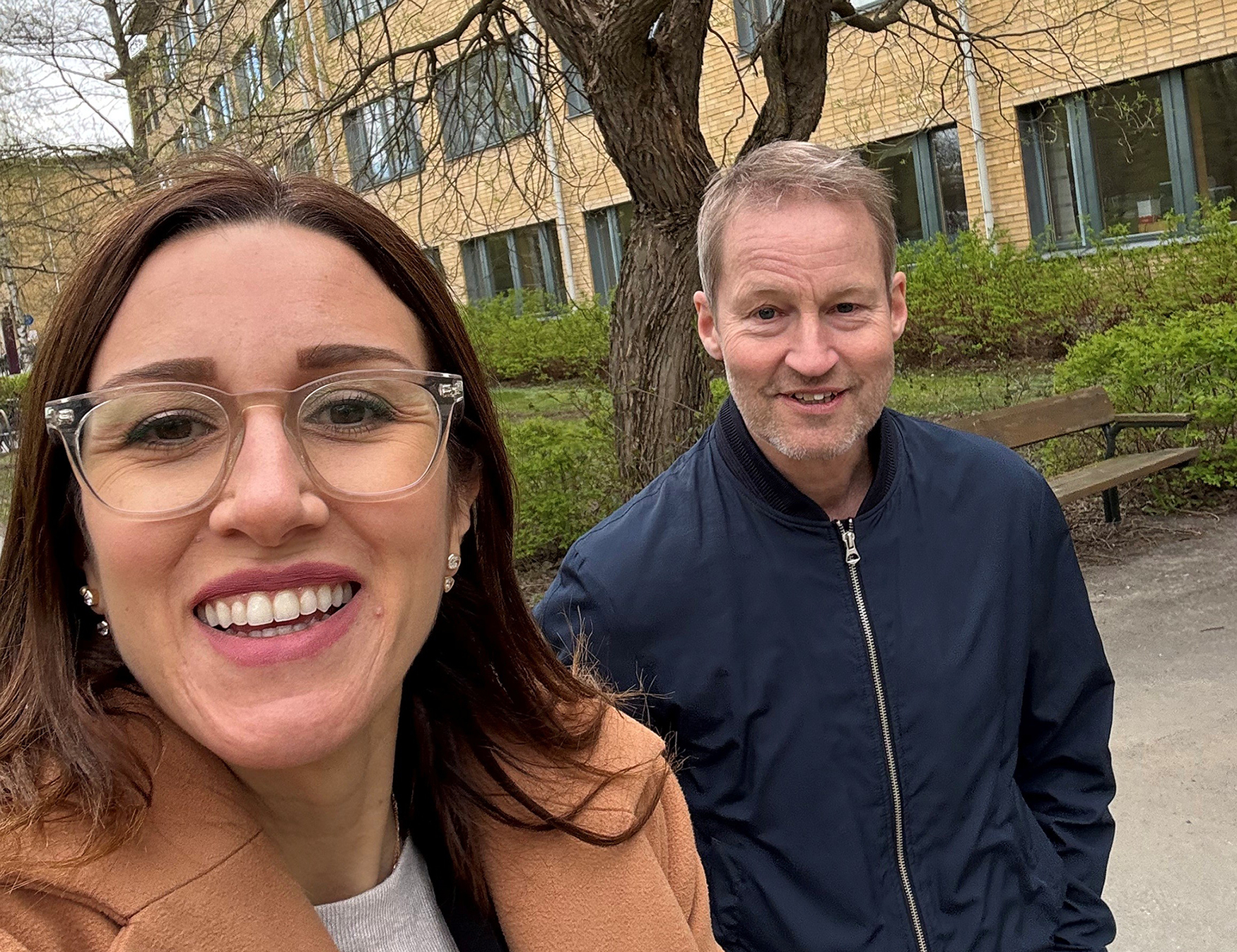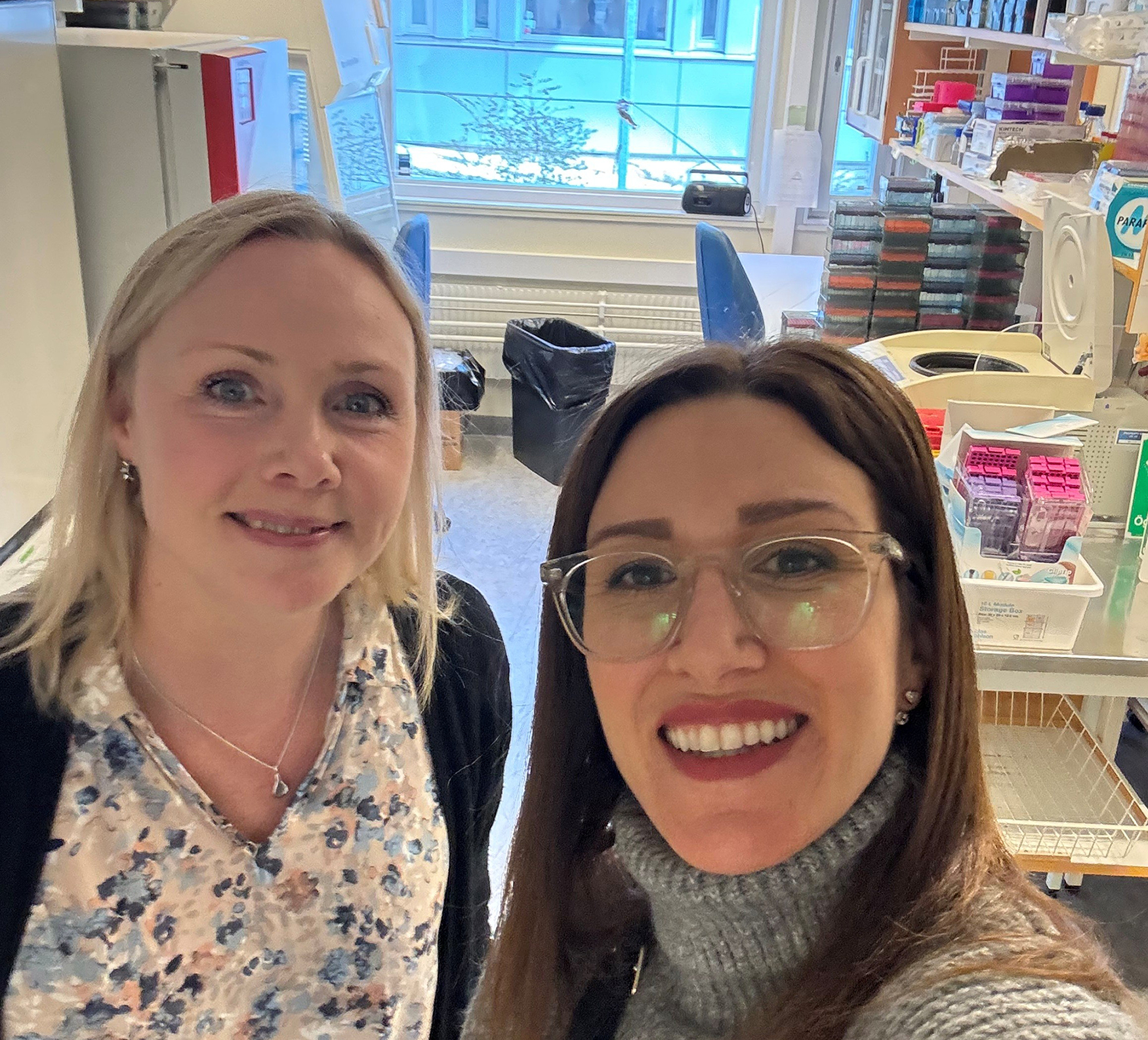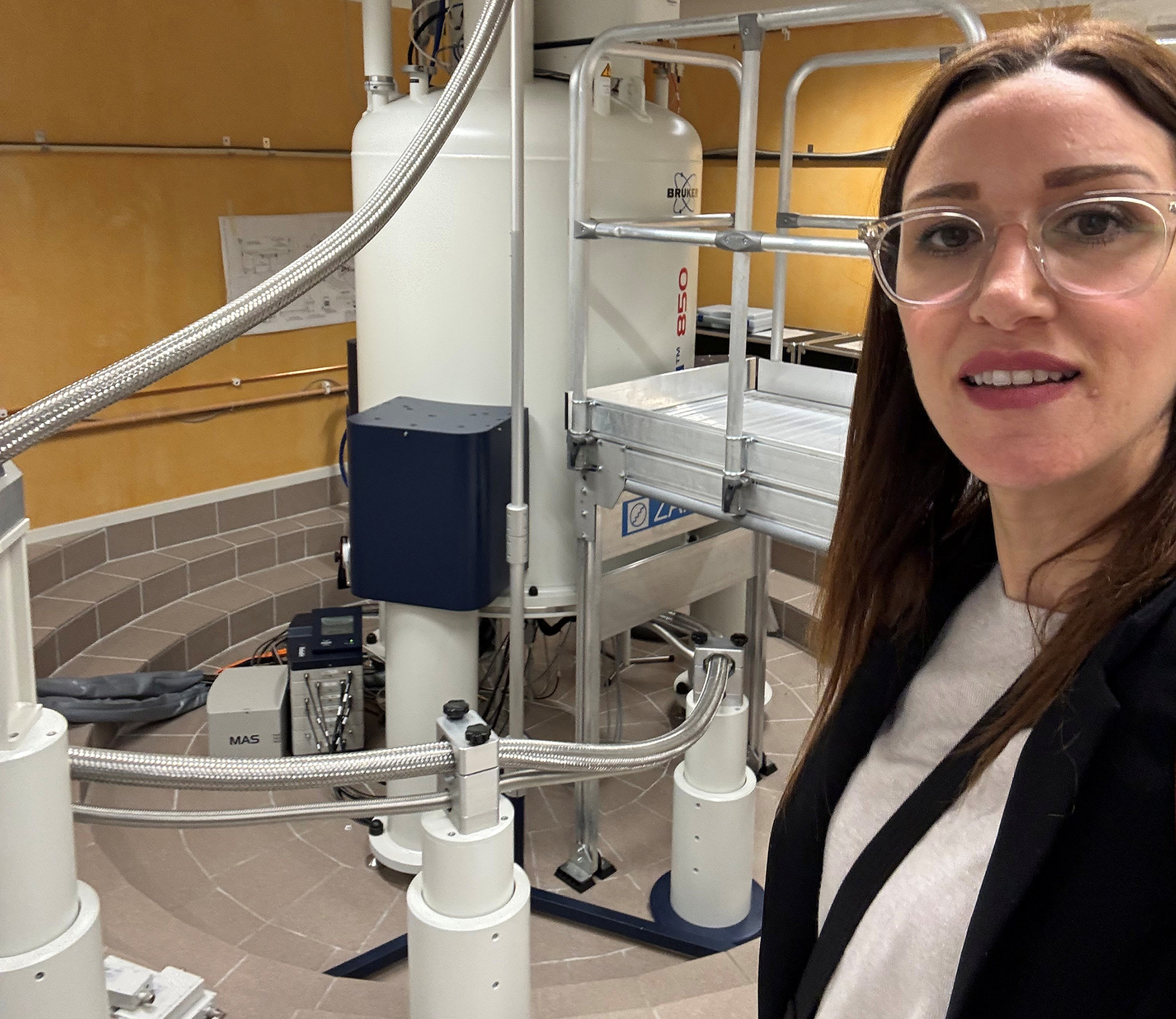
Ender Volkan and Fredrik Almqvist touring the Umea University campus.
Earlier this spring, I had the opportunity to participate in an ERASMUS+ staff mobility programme — a truly enriching experience that took me to Umeå University in Sweden. As a scientist and educator at the University of Nicosia Medical School, I have always believed in the power of international collaboration, and this visit reaffirmed that belief in the most inspiring way.
Umeå University has long been known for its cutting-edge research, state-of-the-art laboratories, and strong culture of innovation when it comes to interdisciplinary scientific fields such as chemistry and microbiology. When the chance to engage with another European institution arose, it stood out immediately as the ideal choice for professional exchange and growth.
I was warmly hosted by Professor Fredrik Almqvist, who is also the Director of Umeå Centre of Microbial Research, UCMR . His generous support played a key role in shaping a truly impactful experience. He welcomed me into his research group and provided invaluable opportunities to interact with fellow scientists and staff across the university.
For instance, I had the honor and pleasure to meet Dr. Marta Bally and Dr. Annasara Lenman where I had the opportunity to discuss their ongoing research and research interests. I also had the pleasure and honor to meet and interact with Dr. Mari Bonde from Umea Biotech Incubator with whom we visited the incubator facilities and had fruitful discussions about culture of innovation at the incubator.

Ender Volkan och Mari Bonde touring the Umea Biotech Incubator facilities
During my visit, I had the pleasure of giving a talk on our current research into Cypriot endemic plant species and their potential antibacterial and antibiofilm activities — with applications against both standard strains and drug-resistant clinical isolates. Sharing this work with a new academic audience sparked engaging discussions and offered fresh perspectives.
A personal highlight was touring Umeå’s NMR facility, which supports both solid-state and liquid-state analyses. As someone working at the intersection of natural products and microbiology, I found the lab’s capacity to analyze everything from small organic molecules to complex proteins both impressive and inspiring.

Ender Volkan touring the NMR facility at Umeå University.
I also attended a fascinating microbiology symposium, with sessions ranging from Bacillus spore pili to antimicrobial resistance in Gram-negative pathogens. These discussions highlighted today’s scientific challenges and underscored the importance of collaborative thinking.
What stood out most, however, was the vibrant and open research community at Umeå University. Engaging with fellow researchers and exchanging teaching strategies reminded me how valuable these international networks can be — not just for scientific progress, but for educational innovation as well.
Although my visit lasted only two days, it was filled with meaningful conversations, new ideas, and lasting connections. I am incredibly thankful to the University of Nicosia Medical School for supporting my participation, and to Umeå University for their warm hospitality and inspiring scientific environment.

